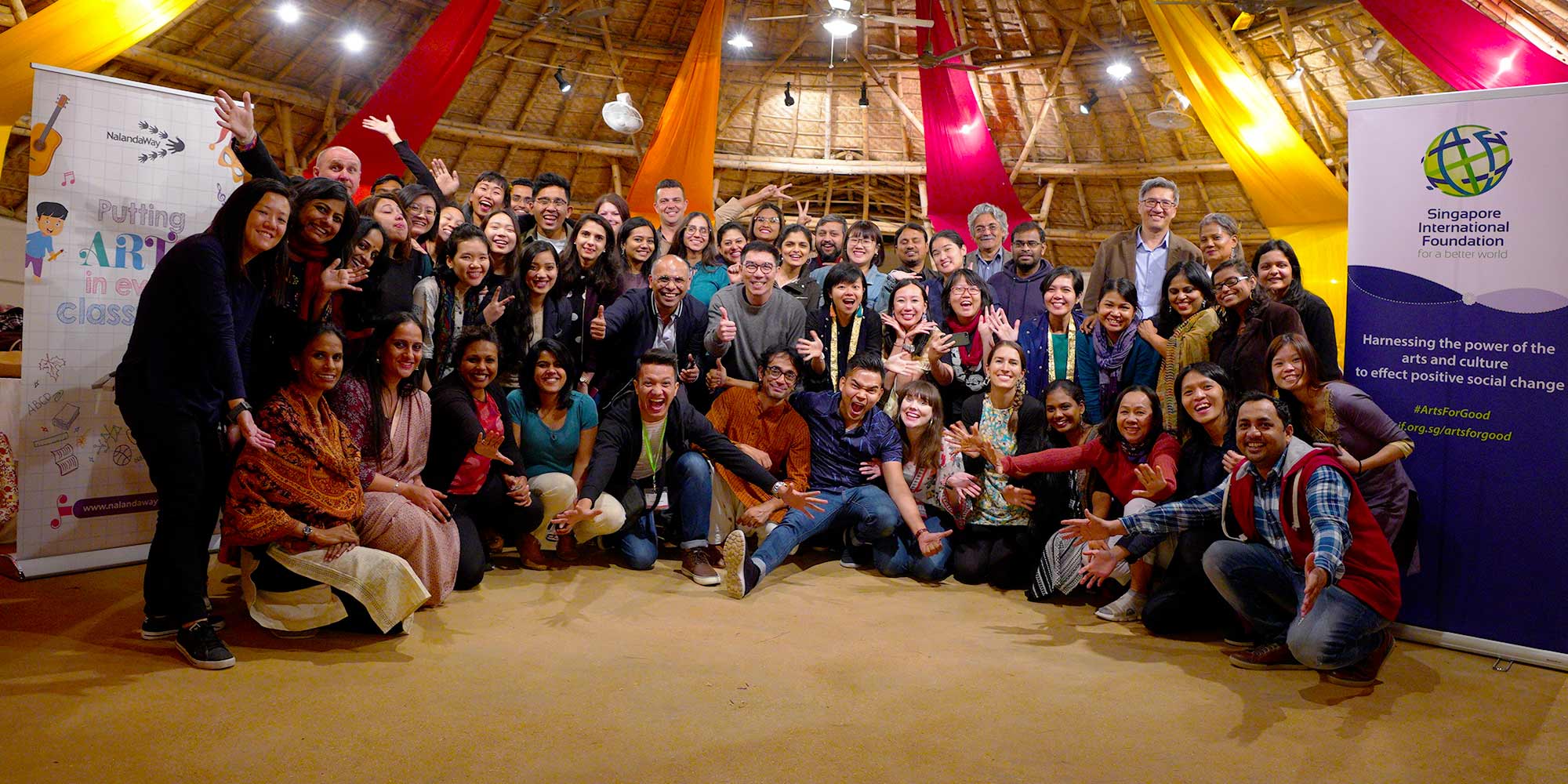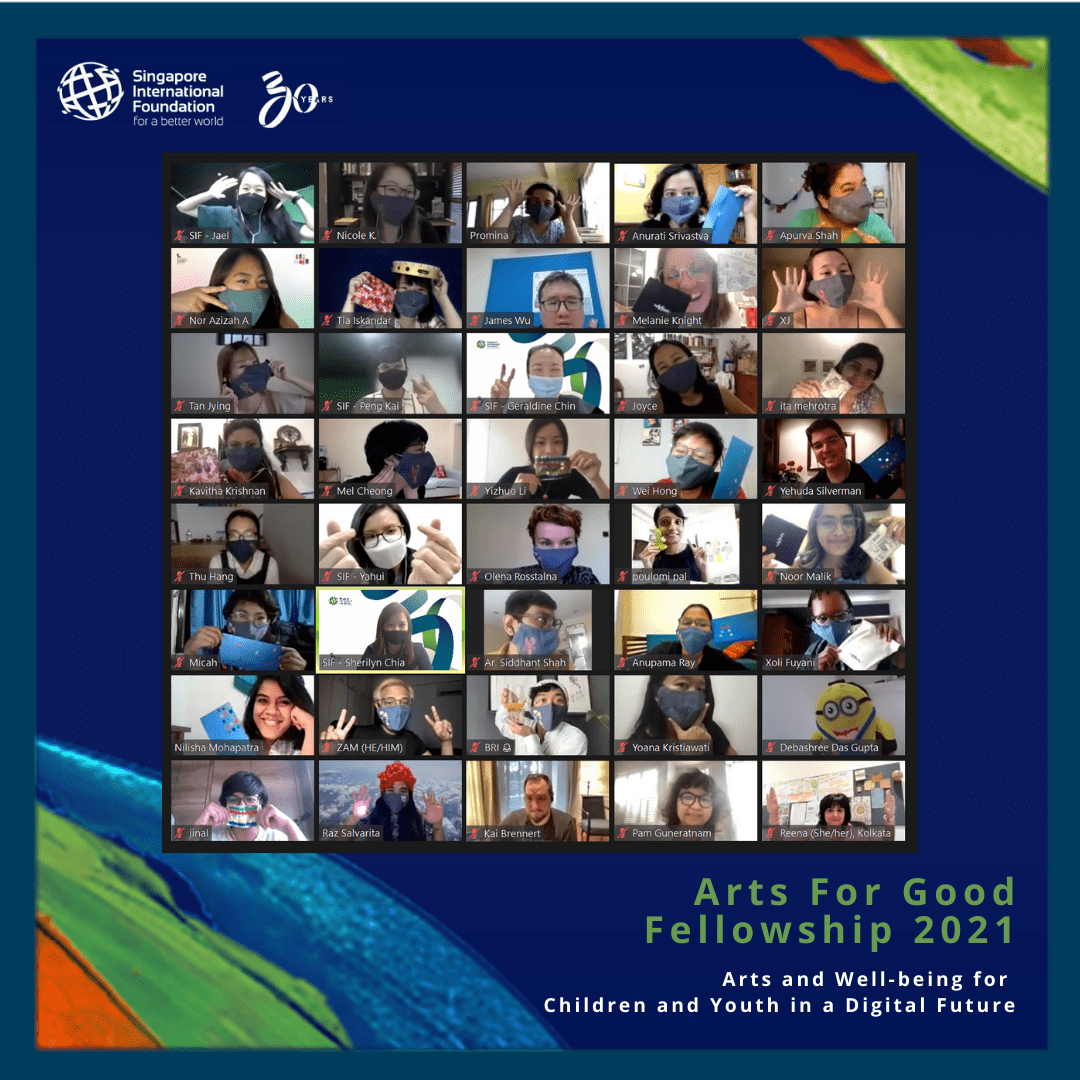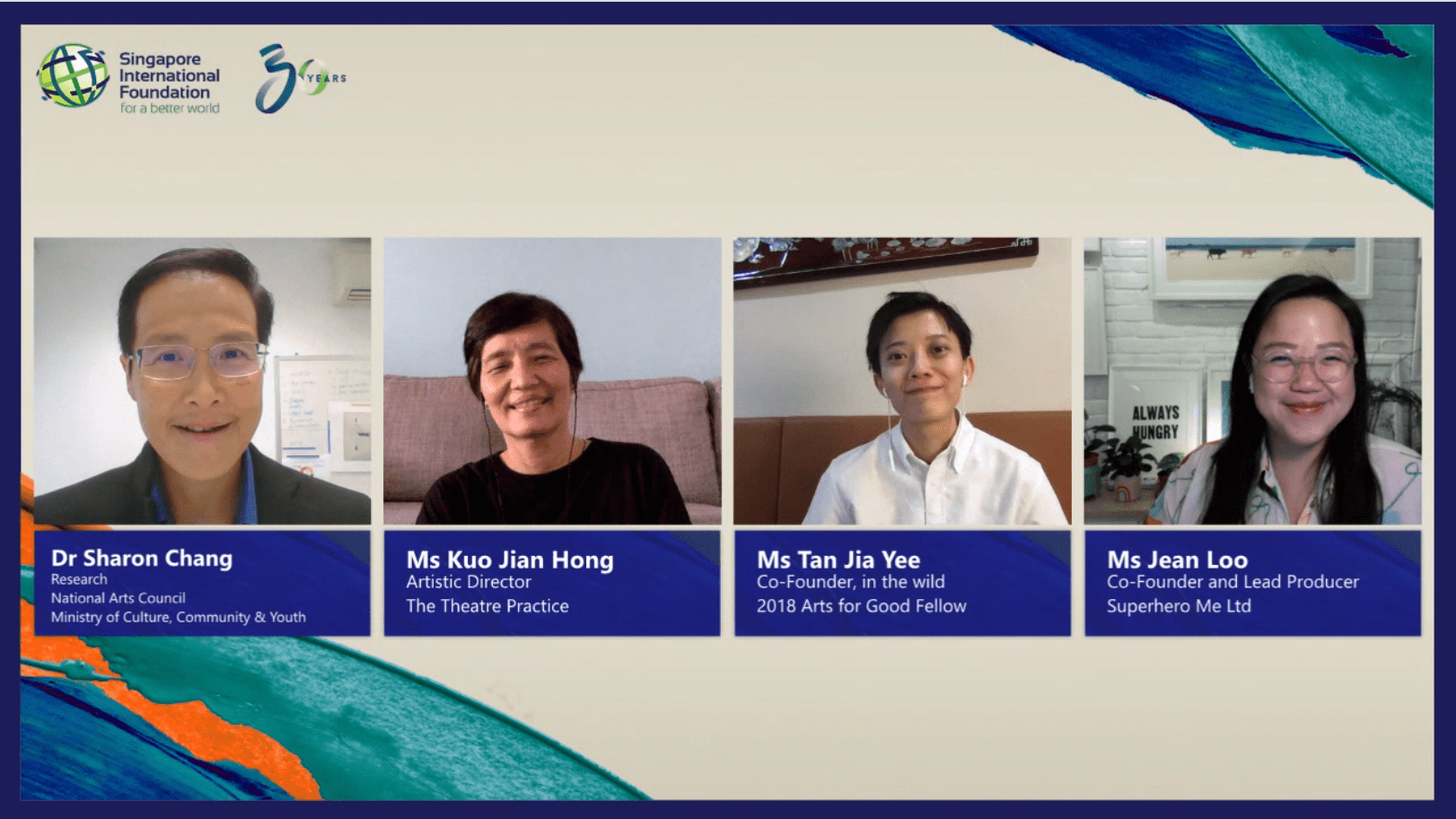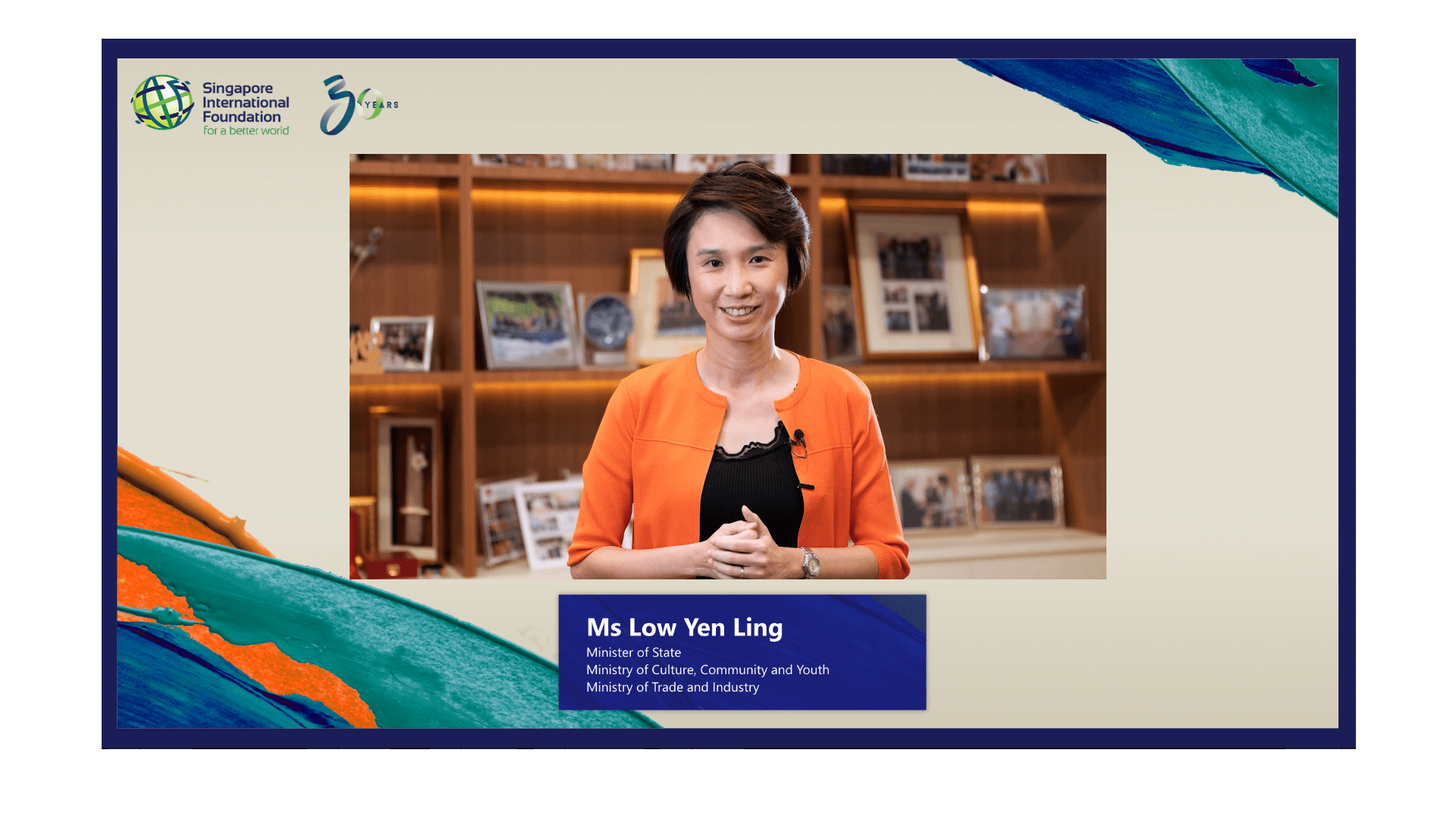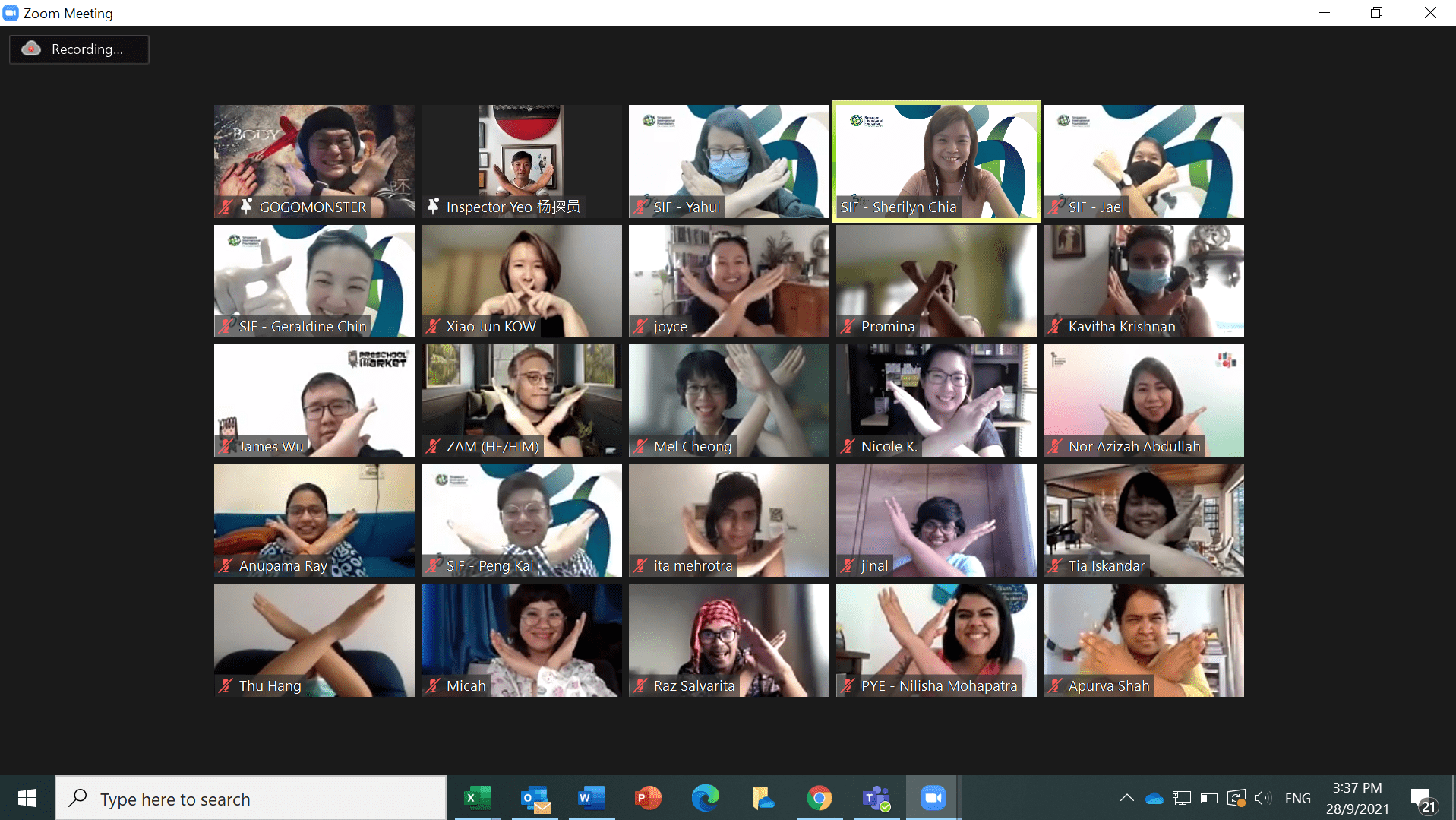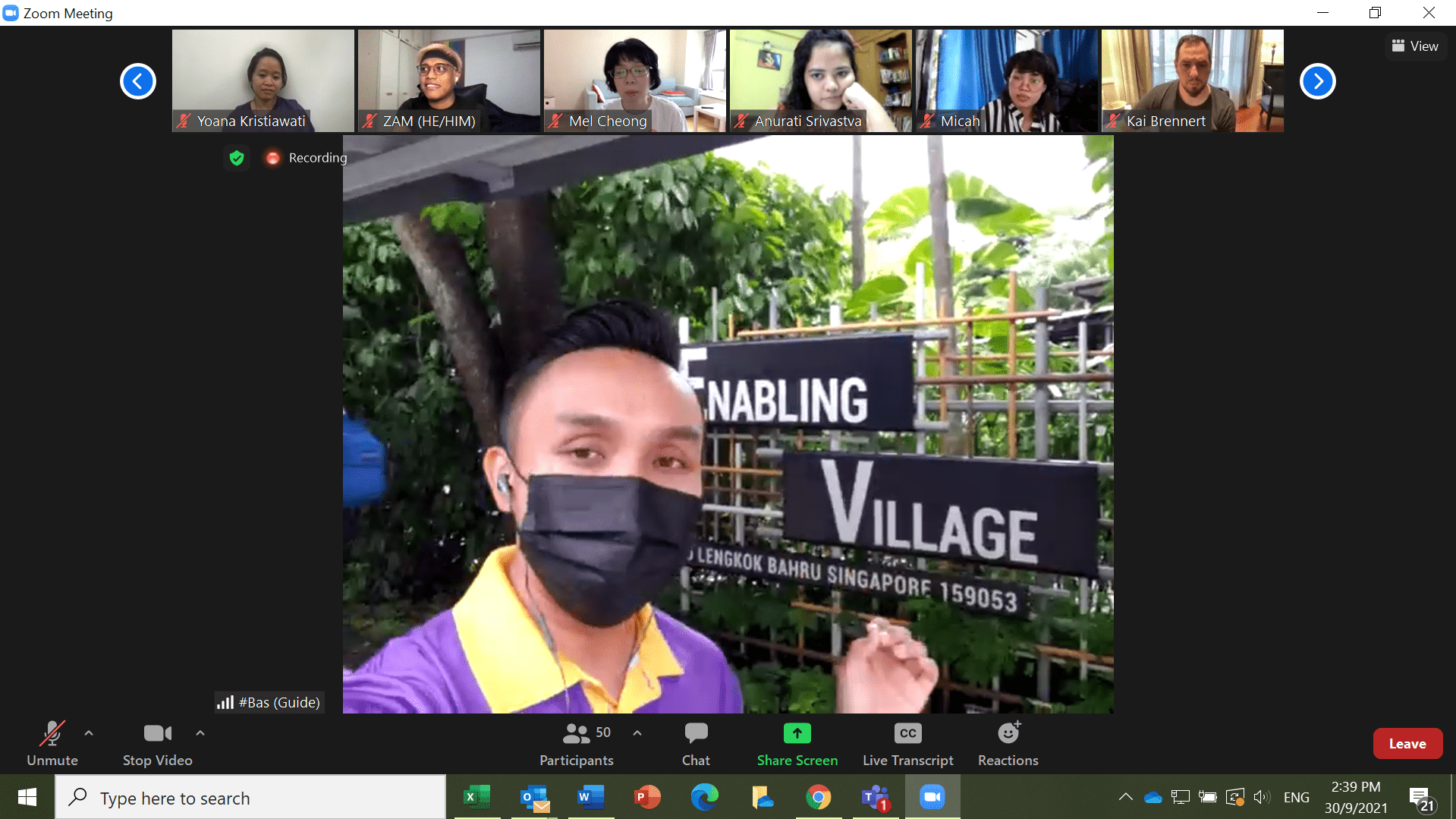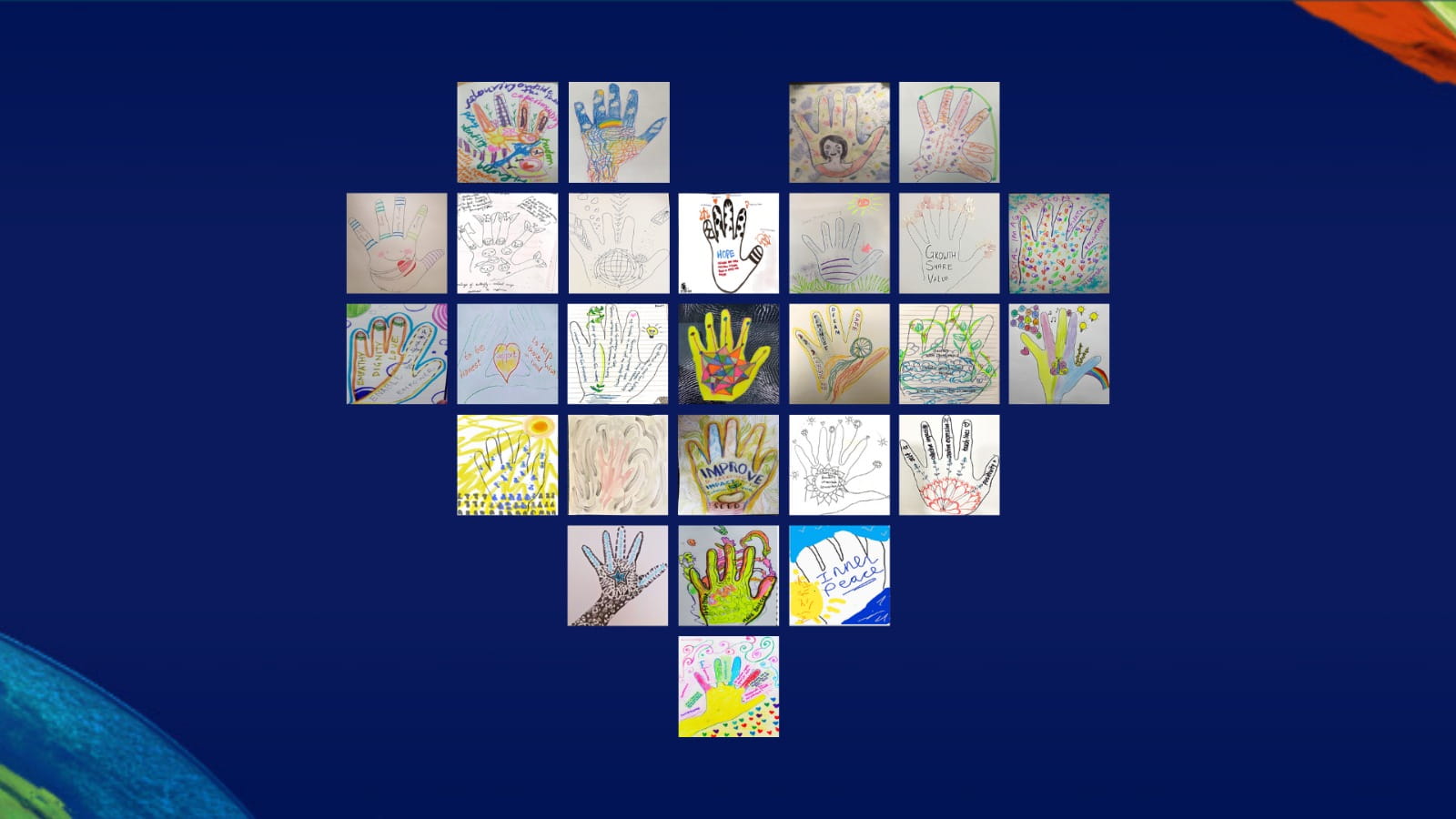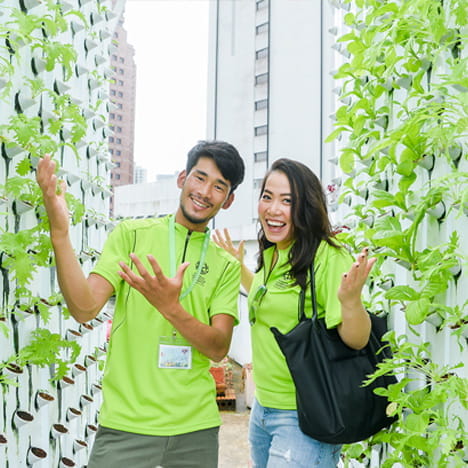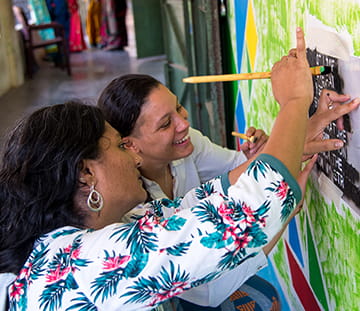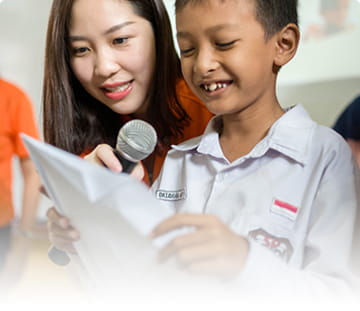The SIF Circumvents Pandemic Restrictions by Going Online to Keep Growing the Arts for Good Global Ecosystem
A total of 32 Fellows from 12 nations joined the first fully online edition of the Arts for Good (A4G) Fellowship, to discuss the challenges of digitalization and how to harness it to reach wider audiences
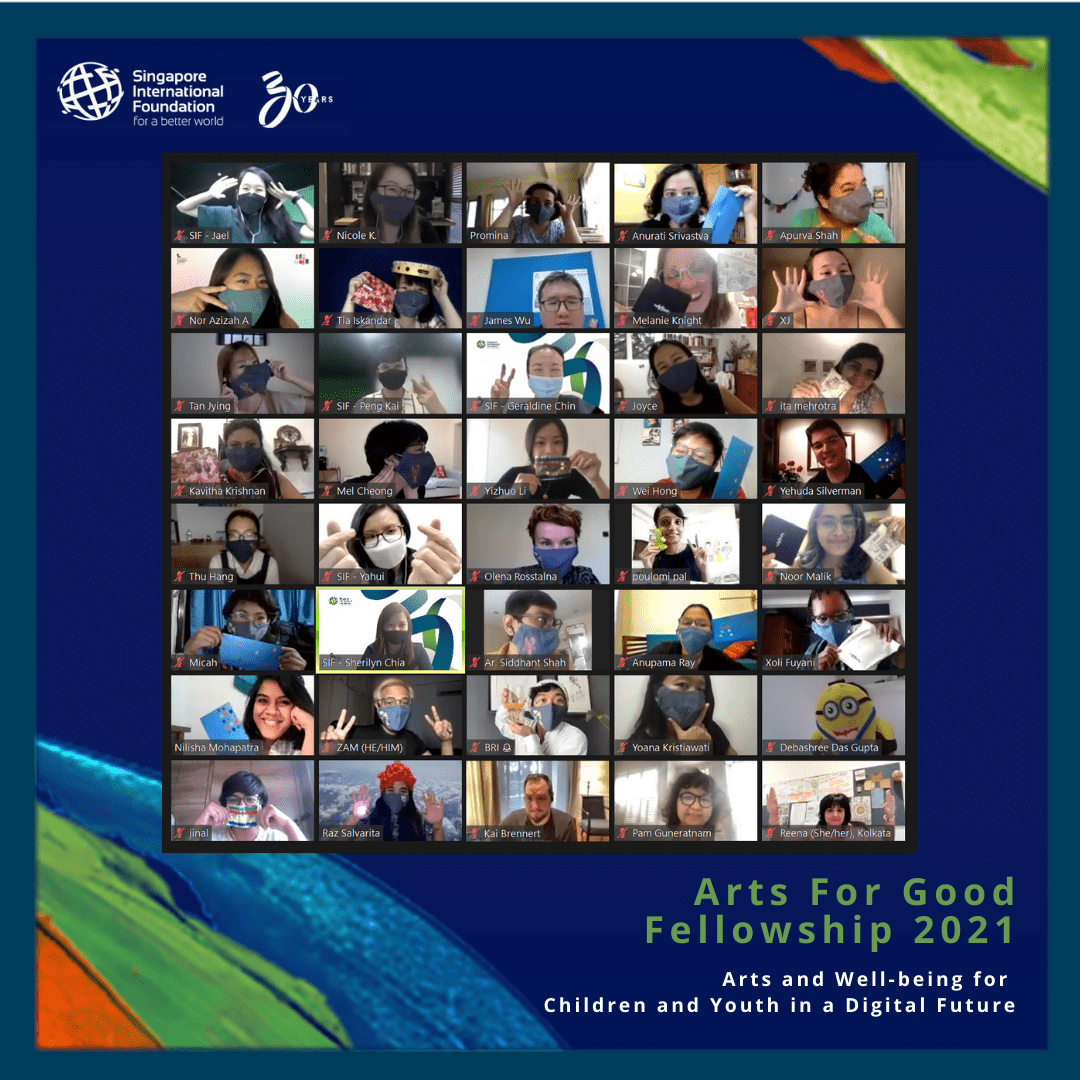
“The digital form will bring about new challenges but the spirit of the arts will not change.”
That was the message from Ms Kuo Jian Hong, Artistic Director at The Theatre Practice and a panellist in an A4G panel discussion titled “Our Journey of Digitalisation in the Arts: Where Do We Go From Here?” Other panellists included in the wild Co-founder and A4G 2018 Fellow Ms Tan Jia Yee as well as the National Arts Council’s (NAC) Chief Research Officer Dr Sharon Chang.
They discussed the opportunities and challenges facing the arts community in Singapore and abroad, which have had to find creative ways of digitising their content to reach a wider audience amid the constraints brought about by Covid-19.
Ms Kuo spoke about the development of digital theatre, which involved audience engagement and participation through digital channels, such as solving whodunnit mysteries via a messaging app. These productions, in particular, were aimed at families with children that had few sources of outdoor entertainment during the extended periods of lockdown last year.
Ms Tan touched on her experience in thinking through how to monetise digital productions for longer-term sustainability. Dr Chang, meanwhile, shared NAC research on the latest trends in the arts world, such as Arts for a Cause and the Asian Cultural Wave, on which practitioners can capitalise.
The pandemic had hit the cultural and creative sectors hard, and the panellists acknowledged that it was difficult to sustain their work. They were nonetheless optimistic about the potential of the arts to address pressing issues such as climate change and racism.
This panel session was a highlight of the Singapore Programme of the A4G 2021 Fellowship, “Arts and Well-being for Children and Youth in a Digital Future”, held from 27 September to 1 October. Now in its fourth edition, the Fellowship went completely online for the first time to circumvent travel restrictions due to the ongoing pandemic. Starting with the Singapore Programme, the Fellowship will span a total of five months – with monthly online workshops – and end with another online programme in India.
True to its aim of bringing together a diverse community of professionals committed to forging positive social change through the arts, this year’s Fellowship saw 32 participants representing 12 nations. Comprising artists, arts practitioners and professionals from the social sectors, they join a community of 94 alumni.
This year’s Fellowship was organised in partnership with the NalandaWay Foundation (NW) and Partners for Youth Empowerment (PYE). NW, which is based in India, uses visual and performing arts to help children from disadvantaged communities, while the US-based PYE trains adults to lead transformative youth programmes that promote equity, creativity and community engagement.
The founder of NW, Mr Sriram Ayer, and PYE Global Partnerships Lead, Ms Nilisha Mohapatra, were alumni from the 2017 and 2019 editions of the A4G Fellowship respectively. This is the SIF’s third time working with Nalandaway and its second collaboration with PYE.
The Singapore Programme included a dialogue with Ms Kay Vasey, Founder and Chief Connecting Officer of MeshMinds and The MeshMinds Foundation. This is a creative studio which works with the United Nations Environment Programme to use art and technology to drive awareness and inspire behavioural change for sustainable development.
The Singapore Programme also included several unconference sessions, which gave Fellows an opportunity to experience peer learning on the various techniques and tools for working effectively with children and youth, as well as collaborating online across borders.
To help them understand the creative potential of digitalising the arts, Fellows attended a viewing and question-and-answer session with the directors of “Body X The Culprit”. This is a local interactive-immersive digital theatre that allows audiences to help solve a murder mystery through online interactions with other investigators. Fellows also took a tour of Enabling Village, where they got a glimpse of the innovative ways people with diverse abilities are served and supported in Singapore.
Fellows found that the sessions helped them to focus on how to use their diverse experience and skillsets in a changing environment, in which digitalisation is key. “I appreciated being able to see technology at work because this is an era in which we're trying to figure out how the digital arts can be experienced,” said Ms Nicole Kay. She is a Singaporean Fellow and founder of a non-profit digital publication, “The Tapestry Project SG”, that champions first-hand narratives on mental health in Singapore.
Fellows also lauded the effort put into curating the programme, which enabled them to forge friendships and networks with like-minded members of the arts community – even though they had to forgo the benefits of face-to-face engagements.
“The sessions were an immense learning experience for me, and helped to deepen my connection with others,” said Ms Poulomi Pal, who is a dance movement therapy practitioner and expressive art facilitator.
The Fellow from India added: “They gave me the opportunity to discover many different arts-based projects, and the possibility of exploring collaborations with others.”
From October 2021 to February 2022, Fellows will undergo a bridging series, comprising monthly webinars to build their capacity in arts innovation, such as cultural mapping and creative models for online engagement.
They will also work closely with NW and one another to conceptualise and develop four online community projects for marginalised children and youth in India. These will be launched during the virtual programme in India.
